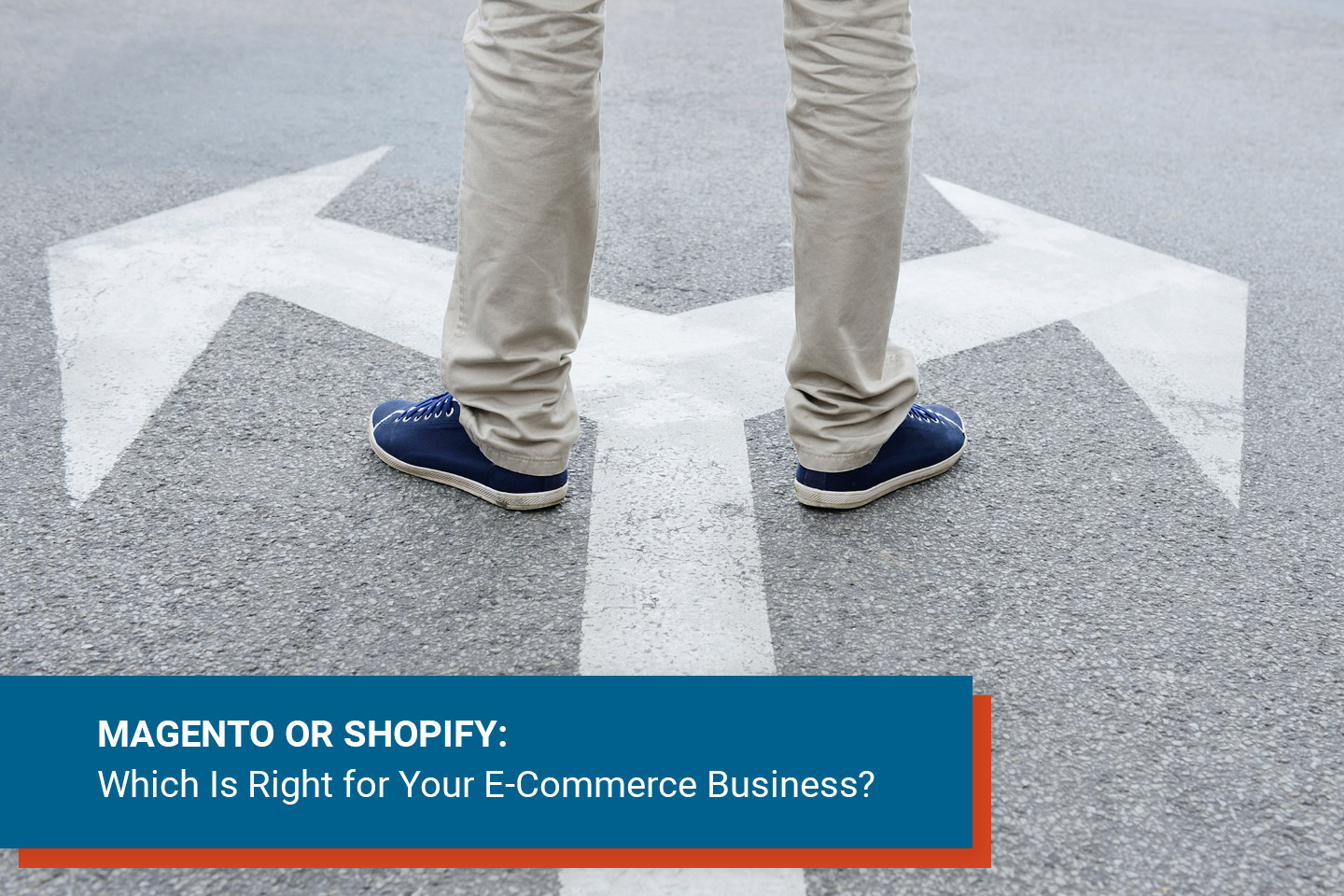Why It’s Never Been Easier to Join The Supplement Industry
 Igor Krasnykh
·
6 minute read
Igor Krasnykh
·
6 minute read

During the past several years, many companies have embraced a subscription-based business model. Some have even defaulted to it. For now, we’ll spare you the details of how recurring revenue prolongs customer lifetime value and generates a higher ROI. The bottom line is that adding the option for recurring orders is a data-backed strategy that doesn’t appear to be boomeranging any time soon.
This article is for you if:
- You want to know more about if the subscription supplement industry is a lucrative opportunity;
- You want to know the four key ingredients for success in the subscription supplement industry;
- You want to schedule time to have a discussion with an experienced e-commerce expert.
Why the supplement industry is ideal for recurring orders

There are many reasons people embark on a supplement journey. They may be concerned with their general health, or they may have personal goals that center around a specific need. While supplements are not intended to treat medical conditions, they can be used to aid the enhancement of many bodily functions. They are said to help strengthen bones, aid with digestion and sleep, increase energy, curb appetites, alleviate stress and much more.
In any industry, subscriptions add a layer of convenience so customers don’t have to remember to place another order before their last one runs out. People who begin taking supplements have generally made a commitment to their ongoing health and vitality. Therefore, a subscription model is a no-brainer for supplement merchants.
The numbers show that online retailers in this specific industry have experienced significant profit surges after they begin offering subscription sales. Take Vitamin Shoppe for example. When the supplements retailer incorporated recurring auto-ship orders into its catalog in August 2017, it gained more than 400,000 subscription customers by the end of the year.
What are personalized vitamin subscriptions?

A noteworthy trend that is taking off in the supplement industry is the opportunity for personalization. Many companies have introduced products like “personalized daily vitamin packs,” which save people from taking one-size-fits-all multivitamins with ingredients they don’t need (or that can lead to vitamin toxicity).
Supplement retailers like takecareof.com offer quizzes that show customers which vitamins and supplements they should care about. Generally, the quizzes gather basic information about you, your goals and diet. The answers prompt a tailored recommendation for a supplement regimen. This is something the beauty industry has been doing for years. Take ipsy.com, for example. The subscription beauty bag empire gives customers a quiz when they sign up, and the answers provide insight into the types of products they would like to receive in their monthly Glam Bags.
Why are we seeing the personal health and wellness industry cling to this tactic? In short, the ability to create personalized recurring orders has made buying online supplements more meaningful and fun.
How the coronavirus has impacted the supplement industry

When the COVID-19 pandemic first emerged in the U.S., it wasn’t surprising to see eCommerce sales immediately surge in certain industries. Among items gaining the most traction were hand sanitizers, masks, gloves and disinfectants. Within a week of the coronavirus news breaking, the vitamin and supplement industry saw a 78% sales increase.
As the light at the end of the pandemic tunnel seems to keep moving further away, the need for serious precautions is prolonging. As such, many are taking a careful look at something they once took for granted — their health. Some are looking to boost their immune systems solely in an attempt to avoid contracting COVID-19. Others are taking the health crisis as a wake-up call to focus on overall wellness.
As a result, the online supplement industry is booming at a time when many businesses are struggling to stay afloat. With unprecedented personalization options and a global pandemic spurring the demand, is now a good time to join the growing list of online supplement merchants?
4 key ingredients for subscription success in the supplement industry

If you’re ready to try your hand in the online supplement industry, why not set yourself up for optimal success? Making critical errors during the launch phase can lead to the ultimate demise of your project. Here are four essential areas to get ahead of.
1. Superb mobile-friendly experiences
Placing an emphasis on mobile commerce should already be a priority for merchants, but ensuring a smooth buying experience across devices is more important than ever. The 2020 Remote Payments Study from PYMTS.com explores how reliance on digital versus brick-and-mortar commerce has shifted for U.S. consumers during the COVID-19 pandemic. The findings reveal that 53.3% of 3,477 respondents used their mobile devices to complete their most recent purchases.
Whether you are entering the online supplement industry or focusing on another niche, the eCommerce platform you choose to launch your store on makes all the difference. While we love the Magento eCommerce platform for a variety of reasons, it’s also our No. 1 choice when it comes to superior mobile experiences because of its focus on Progressive Web Applications (PWAs). PWAs look and function like smartphone applications, however they are accessed through a mobile browser. This eliminates the need to download a separate mobile application while still providing benefits like a sleek look and fast load times.
Aspiring eCommerce merchants should zero in on platforms that prioritize mobile initiatives. During the Adobe Summit 2020 digital experience, Magento announced that it would be doubling down on its PWA efforts this year. That’s because merchants using Magento Commerce 2 in conjunction with the platform’s PWA Studio are seeing conversion rates increase by 50% and higher.
2. Convenient shipping options
If you’re not careful, your online shopping cart can present a purchasing barrier for your customers. Unfortunately, poorly configured checkout experiences contribute to the Internet’s 70% abandoned cart rate. Fine-tuning your checkout process helps ensure a frictionless experience when your customers are ready to buy. Eliminating the need for shoppers to enter customer and payment information is one of the best ways to increase profitability at checkout.
One-click purchase buttons, which were made popular by Amazon, facilitate on-demand buying (and it’s a standard feature of the Magento eCommerce platform). Offering free shipping options is another one of our top picks for checkout success. That’s because 79% of U.S. customers are more likely to make purchases online when they don’t have to pay for shipping. You don’t necessarily have to offer free shipping on all orders. Try offering it exclusively to members, to customers who spend a certain amount or to those who are willing to pick up items at a brick-and-mortar store.
3. Exclusive pricing for members
Offering exclusive deals and discounts provides an incentive for people to sign up for a membership with your business. JustFab and Savage x Fenty are examples of businesses that have done this well. Both have implemented unique pay structures that center around membership fees.
JustFab charges a monthly fee of $39.95 for customers of its clothing subscription box, where customers pay for items they want to keep and return the ones they don’t. The payment ensures members will receive a box full of personalized merchandise and also serves as a credit that can be used on the products. Customers also enjoy 30% off retail pricing, free shipping/exchanges and invites to VIP-only private events and promotions.
Savage x Fenty, Rihanna’s lingerie subscription box, charges members $49.95 per month. Like StitchFix, the monthly fee can be used toward purchases. Members are also given a 25% discount on full-price items and gain access to exclusive deals.
4. Top-notch subscription-management software
One of the most important survival strategies for eCommerce businesses is equipping themselves with robust tools that help facilitate long-term success. If you are considering joining the subscription economy, subscription management software is one of the investments you must think about. You need a system that is capable of handling the most complex recurring billing scenarios. Let’s imagine a customer’s supplement auto-delivery profile looks like this:
- 30-day supply of multivitamins delivered every month;
- 90-day supply of 500mg vitamin D tablets delivered once every three months;
- 24 oz. protein powder delivered every two weeks.
For merchants that use Magento, the Magento subscription products are equipped to process recurring billing cycles automatically. The software also offers full-featured mobile experiences and allows customers to easily place and change orders at their convenience.
Another way for merchants to manage subscription orders is through their customer relationship management (CRM) systems. CRMs are important because they provide a way for merchants to centralize customer data and interactions in a single platform.
For merchants who use Salesforce, the leading name in CRM software, TechNWeb’s Recurrex subscription management solution is a great option that offers all of the same benefits as mPower for Magento. With it, merchants are able to create a subscription profile for recurring customers, which is a custom object within Salesforce.
Do you need individual guidance?

At TechNWeb, our mission is to provide highly configurable merchant solutions designed for growth. The reason we do what we do is that we are passionate about seeing businesses in the eCommerce industry thrive. In the midst of COVID-19, one of the ways we have pledged to help the online merchant community is by offering free eCommerce strategy sessions.
If you are considering joining the supplement industry or any other area of online sales, we are here for you. Our $997 strategy sessions helped several companies this year grow their revenue by more than 20% in most cases. Reference this article, the first session is on us.

.png)

